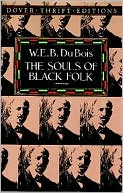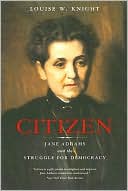Sociological Lives and Ideas
Despite their role in founding and defining the discipline of sociology, the field's classical theorists typically receive only cursory attention in standard introductory texts. Written specifically for undergraduate students, this supplemental text, Fred Pampel's Sociological Lives and Ideas brings to life the fundamental ideas of Karl Marx, Emile Durkheim, Max Weber, Georg Simmel, George H. Mead, and W.E.B. DuBois by placing them in the context of each theorists' biography. By exploring...
Search in google:
Despite their role in founding and defining the discipline of sociology, the field's classical theorists typically receive only cursory attention in standard introductory texts. Written specifically for undergraduate students, this supplemental text, Fred Pampel's Sociological Lives and Ideas brings to life the fundamental ideas of Karl Marx, Emile Durkheim, Max Weber, Georg Simmel, George H. Mead, and W.E.B. DuBois by placing them in the context of each theorists' biography. By exploring the lives and times of these key figures, students will gain a richer understanding of their intellectual legacies, as well as of the ways in which their work can be applied to current issues.
Preface viiChapter 1 The Sources of Human Misery: Karl Marx and the Centrality of Social Class 11 Toward Permanent Exile 22 Responses to Industrialism 73 The Material Basis of Social Life 124 A Revolutionary Socialist 165 The Communist Manifesto 206 Capital and Surplus Labor 257 The Power of Ideology 30Summary 35Discussion Questions 37References 38Chapter 2 The Problem of Social Order: Emile Durkheim and Morality in Modern Societies 431 From Small-Town France to Paris 442 Political and Social Problems in France 483 The Moral Basis of Social Life 544 The Scientific Comparison of Societies 595 The Division of Labor in Society 636 Suicide as Social Behavior 677 Individualism and Community Ties 73Summary 79Discussion Questions 81References 82Chapter 3 A Prophet of Doom: Max Weber and the Spread of Rationality 871 A Tormented Family Life 882 Germany: A Nation of Extremes 933 Protestantism and the Emergence of Capitalism 984 Sources of Social Inequality 1045 Rationality and Bureaucracies 1086 Power and Authority 1137 Rationality in Contemporary Society 117Summary 121Discussion Questions 123References 124Chapter 4 Impressions of Everyday Life: Georg Simmel and Forms of Social Interaction 1291 The Attractions of City Life 1302 Jewish Life in Germany 1343 Sociology and Social Forms 1374 Forms of Domination and Conflict 1435 The Consequences of Group Size 1486 Money in Modern Social Life 1537 Simmel's Legacy 157Summary 161Discussion Questions 163References 164Chapter 5 Uniting Self and Society: George Herbert Mead and Symbolic Interaction1691 Religious Goals Transformed into Social Action 1702 Threats to American Values: Chicago and the Growth of Cities 1753 Combining Learning and Problem Solving 1794 A Social Version of Behaviorism 1845 Human Thinking Comes from Social Interaction 1896 The Emergence of the Social Self 1947 Symbolic Interactionism 198Summary 203Discussion Questions 205References 206Chapter 6 W. E. B. Du Bois and the Tragedy of Race in America 2111 Preparing for his Life's Work 2122 The Failure of Reconstruction 2163 The Philadelphia Negro 2214 The Souls of Black Folk 2265 Race, Class, and Africa 2316 Legacy as a Social Theorist 237Summary 241Discussion Questions 243References 244Index 249








